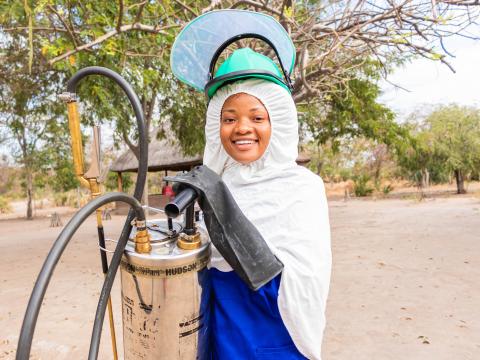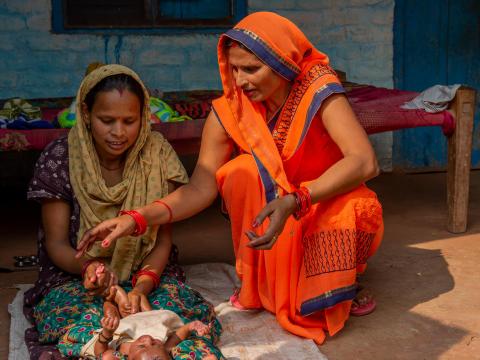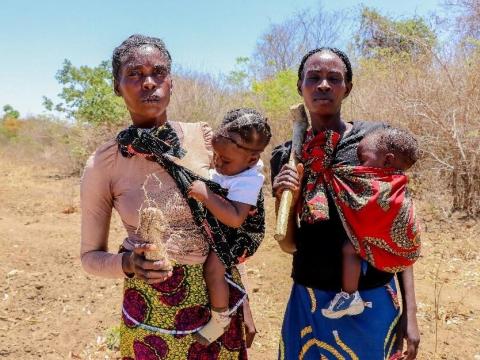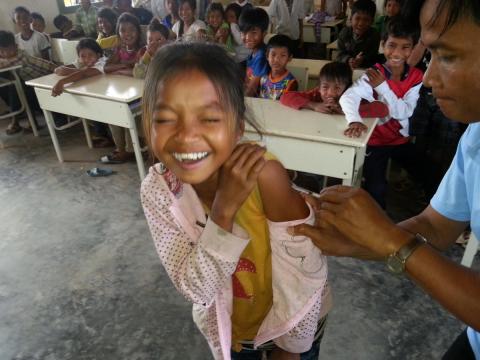
Communities play a key role in eliminating malaria
On World Malaria Day Christopher Wachira Wanjue warns that ignoring the insights of local people risks increases in malaria cases in years to come.
Growing up in rural Kenya, malaria was a common ailment and accounted for most of my family’s visits to a health facility. More than four decades later, malaria remains a significant threat to global health and the economy, with nearly half of the world's population still at risk.
The World Health Organization’s World Malaria Report 2022 estimated 247 million malaria cases in 2021, an increase from 245 million in 2020—partly due to disruptions to services during the COVID-19 pandemic—as well as 619,000 malaria-related deaths. However, as the Director-General, Dr. Tedros, observed in the 2021 report, even before the pandemic, global progress against malaria had levelled off, and countries with a high burden of the disease were losing ground, registering increases in malaria mortality.
The theme of this year’s World Malaria Day, held each year on April 25, is: “Time to deliver zero malaria: invest, innovate, implement.” As I reflect on that, I am drawn to the third “I”—implement —and the critical importance of reaching marginalised populations with all the tools and strategies available today. As a global community, we are urged to address not only the technical challenges facing implementation but also the barriers people face in accessing quality health services, including barriers that hinder understanding of the critical importance of interventions with life-saving potential.
My question is, where is the role of marginalised populations' indigenous knowledge, attitudes, and practices in the malaria control puzzle? As I contemplate the critical importance of considering local contexts, perceptions, and cultural dynamics for community acceptance in malaria control, I am struck by the observations of Akwaowo Bassey Orok and his co-authors in their narrative review about malaria interventions.
They highlight that the lack of a well-planned and coordinated synergy between the health care providers and the community could be the main reason why efforts in malaria eradication and elimination have not been very successful.
In our Global Fund malaria response programme in Malawi in 2022, 38% of the dwelling structures not reached with indoor residual spraying (IRS) was because household members declined to have their homes sprayed. Although the reasons for their responses were not documented, beliefs, attitudes, and misconceptions may have played a significant role in the refusal. In 2022, World Vision trained and supported 3,063 (858 female and 2,205 male) community leaders in Malawi to conduct door-to-door visits and awareness sessions, discussing the benefits and homeowners’ roles, and addressing individual myths and misconceptions concerning the IRS campaign. At the end of the IRS campaign, 97% (529,285 of 546,833 targeted structures) were sprayed, benefiting over 1.9 million people.
An adequate assessment, as well as collaboration between service delivery and the community's input to differentiate interventions is paramount. I appreciate the approach Kenya has taken, as outlined by Dr. Rebecca Kiptui, of Kenya's National Malaria Control Programme, that because transmission is not the same across the whole country, each region needs its own intervention package, so malaria interventions are tailored to each region in Kenya and to their specific issues.
As we join hands in observing World Malaria Day on April 25, we must remember to involve the community as critical partners to define malaria control interventions if the gains already recorded in the fight against malaria are to be sustained.
Learn more about World Vision’s work to address malaria here and our partnership with the Global Fund here
Christopher Wachira Wanjue is the Global Fund Unit Manager at World Vision International providing management and technical support to World Vision’s Global Fund-supported HIV/AIDS, Tuberculosis, and Malaria grants portfolio in multiple countries. He is a humanitarian worker with over 20 years of experience. As a Social Worker with a public health background, Christopher is interested in initiatives that deliberately integrate and empower community systems for health. Follow Christopher at https://www.linkedin.com/in/chriswanjue and contact him at Christopher_wachira@wvi.org


